Open on Evenings & Holidays! Extended And Flexible Hours!
* DNA Testing for Immigration
* Paternity Testing
* Deceased Paternity
* Forensic Testing & Much More!
Open on Evenings & Holidays! Extended And Flexible Hours!
* DNA Testing for Immigration
* Paternity Testing
* Deceased Paternity
* Forensic Testing & Much More!
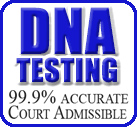
AB DNA Testing Services
Phone: 718-701-0292
Fax: 718-458-9700
Monday: 10:00 am – 8:00 pm
Tuesday: 10:00 am – 2:00 pm
Wednesday: 10:00 am – 8:00 pm
Thursday: 10:00 am – 2:00 pm
Friday: 10:00 am – 8:00 pm
Saturday: Closed
Sunday: Closed
We offer New York’s BEST AND MOST AFFORDABLE DNA TESTING with a full range of services to verify family relationships.
We specialize in the following types of DNA tests:
• Paternity • Maternity • Grand-parenting • Sibling Relationship • Biological Relationship Studies • Twin Studies • Deceased Paternity • Forensic Testing • Child Identity Testing • Family Tree and Genealogy Testing
* EVEN LOWER PRICE THAN HOME DNA KITS.
* NO HIDDEN COSTS – Collection kits, photography, and fingerprinting all included.
* 99.9% (OR GREATER) ACCURACY.
* FINAL RESULTS ARE PRESENTED IN A NOTARIZED DOCUMENT IN A CLEAR AND CONCISE FORM.
* ALL RESULTS ARE COURT ADMISSIBLE.
* OVER 15 YEARS EXPERIENCE.
* NO REFERRALS NECESSARY!
* FAST AND PAINLESS SAMPLE COLLECTIONS, USING BUCCAL (Mouth) SWABS.
* SPANISH, PORTUGUESE, FRENCH AND CREOLE SPOKEN.
* PLEASE SEE TRANSLATIONS OF OUR SERVICES IN: SPANISH, BENGALI, URDU, CHINESE AND NEPALESE!
* OPEN SATURDAYS & Sundays!
Located In Woodside Queens, easily reachable from all boroughs (Queens, Manhattan, Brooklyn, Bronx and Staten Island), Westchester, Nassau and Suffolk. 4 Blocks from No. 7 Train (Flushing Line) and Long Island Railroad.
DNA TESTING AVAILABLE FOR BAHAMIAN CITIZENSHIP
ALL SAMPLES ARE COLLECTED IN THE BAHAMAS AND TESTED IN THE US AT AN ACCREDITED LABORATORY. CALL NOW.
Call us. We have found that in many cases, our personalized service can overturn your denial. We will call the passport office or immigration dept. for you and plead your case over phone verbally.
90% of time they will revoke your denial, as long as you get the required information to them quickly.
AB DNA TESTING SERVICES
63-11 Queens Boulevard
Woodside NY 11377
AB DNA Testing Services © |
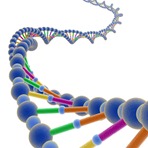 |
718-701-0292 We are open on evenings & holidays! |
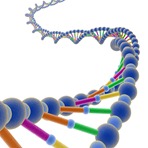 |
AB DNA Testing Services © offers a full range of DNA testing services using the most highly qualified and Certified DNA testing laboratories in the country.
For New York residents, DNA testing has to be performed by a physician or legal entity (court, USCIS, US Embassy or Consulate).
AB DNA TESTING SERVICES © offers a “One-Stop Shopping” service since we have a doctor on the premises who will perform the test. We are open 7 days a week, including weekends.
Immigration DNA Testing • Paternity • Maternity • Grand-parenting • Sibling Relationships • Biological Relationships • Twin Studies • Deceased Paternity • Forensic Testing • Child Identity Testing • Family Tree and Genealogy Testing
Other doctors will charge a fee just for the office visit. We do not charge a fee for our on premises doctor visit. Save money and call for an appointment today!
AB DNA Testing Services ©
718-701-0292
DNA TESTING AVAILABLE FOR BAHAMIAN CITIZENSHIP
ALL SAMPLES ARE COLLECTED IN THE BAHAMAS AND TESTED IN THE US AT AN ACCREDITED LABORATORY. CALL NOW.
What is forensic DNA testing? DNA testing is essential for the research process. Various fields rely on DNA testing (for instance, forensic science, genealogy, agriculture, medicine, and many more). DNA stands for the term deoxyribonucleic acid. DNA helps human cells function properly. In fact, DNA is the blueprint that contains information for encoding proteins and other components of the cell. You can understand how essential DNA testing is through medical, research, and judicial perspectives. Below, we will talk about how important DNA is for Forensic testing and how professionals perform Forensic DNA testing.
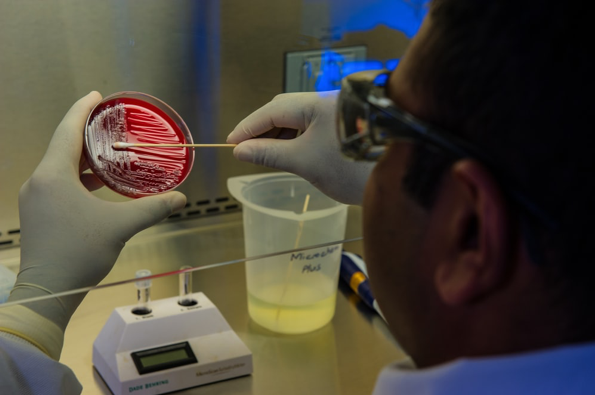
(Source)
Results from DNA testing can identify every individual separately. Authorities can apprehend a lot of criminals and solve cases with the help of Forensic DNA testing. In forensic DNA testing, investigators collect tissue samples from hair or blood found on the crime scene. After that, the technician identifies the person present at the crime scene or possibly involved in the crime. Results from forensic DNA testing also hold up as evidence in court. To reach a verdict, the police and judiciary system depends on DNA fingerprinting results’ power and credibility.
Scientists can determine the DNA profile through various body parts. These include cells, tissue, bone, teeth, hair, feces, urine, saliva, semen, and blood.
Through advancing technology, forensic scientists are developing the ability to analyze even smaller biological samples to develop a DNA profile. For instance, if someone touched a weapon or an object, they might leave some skin cells behind. Professionals refer to this type of DNA as touched DNA. They can also collect this DNA from bruises or the skin of victims, both alive or deceased.
When fingerprints are hard to retrieve, low-level DNA samples can be helpful. They can find these samples from gun handles, dashboards of the vehicle, or any other surface. However, only limited jurisdiction can process these types of evidence.
Technicians will compare the suspect’s DNA profile or the victim to the DNA recovered from the crime scene. For that, the laboratory should have their known samples ready so that they can compare them easily. Analysts call these samples reference samples. Various jurisdictions collect samples from the arrestee daily during fingerprinting and booking. However, this law about collecting samples from the arrestees is evolving and can vary depending on states. TO collect the reference from an arrestee, they sometimes require an order from the court. Investigators can gather Reference samples from the suspect unless they are not cooperating. For that, they will need a court order.
Other than reference samples, investigators will also collect elimination samples from other personnel. These can include first responders, analysts, and crime scene personnel who are working on the case. By testing their samples, investigators can eliminate them from the investigation.
Properly collecting the biological evidence is essential, but preserving it is more so. Exposure to humidity or heat may degrade the samples. Therefore, technicians store evidence in a cool environment. If the stains are dry, storing them in a cool place rather than at room temperature is unnecessary. However, the samples should be away from any humidity. Liquid samples should be in an insulated or refrigerated container.
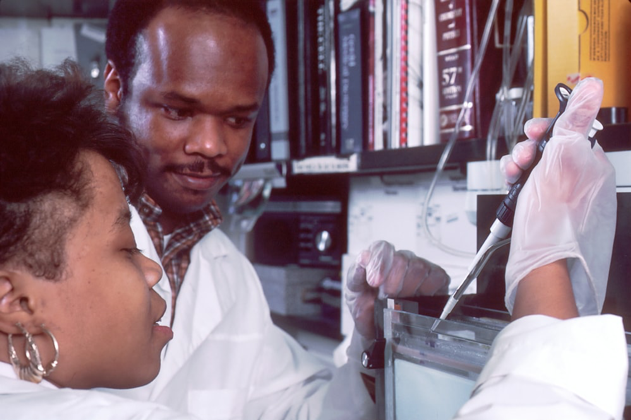
(Source)
DNA analysts who are working in the laboratory participate in the NDIS (National DNA Index System). Analysts should receive their certification from a recognized organization such as AABB and the specific training and educational requirements. The minimum requirement is a bachelor’s degree in chemistry, biology, or in a field related to forensic science. Furthermore, the analyst must complete nine hours at a graduate or undergraduate level in various subjects. These include molecular biology, genetics, biochemistry, etc. They should also have training or course work in population genetics or statistics as they are essential to forensic DNA analysis.
For ensuring the analysts’ skills are up to date, the analysts working in a criminal laboratory should also update their education. The FBI has defined these requirements in the QAS or Quality Assurance Standards. You can refer the specialist conducting the DNA analysis in a laboratory with various titles, such as Forensic Laboratory Analyst, Forensic Scientist, Forensic Examiner, and Crime Laboratory Analyst.
The DNA samples that a laboratory receive go through the following steps:
The analyst will release the DNA from the cell.
Next, they will define the quantity of DNA.
For characterizing the DNA, the analyst will produce multiple copies.
This process permits the identification of the amplified DNA through separation.
This is the qualitative and quantitative comparison of the DNA evidence from the DNA profiles.
In this process, the analyst’s reports undergo reviews for technical accuracy.
AB DNA Testing is a forensics lab accredited by AABB. Our friendly and professional technicians will help you understand how DNA testing works. They will also inform you about what steps you need to follow to retrieve the results. Suppose you are interested in DNA testing for immigration, Paternity and maternity DNA testing, or Forensic DNA testing. In that case, you can contact us at 718-701-0292, or you can visit our website for details regarding DNA testing.
Forensic DNA testing is the testing of DNA samples for the purpose of solving crimes. Many crime shows depict forensic DNA testing with the capturing of different samples, such as blood and hair, from a crime scene. Is this an accurate depiction? Well, these samples can be used for DNA testing, but this isn’t the whole story. Forensic DNA testing can actually be done with a variety of DNA samples, and it turns out that this type of DNA testing is extremely accurate. Courts of law and other legal entities trust the accuracy of forensic DNA testing to the point that they will convict someone of a crime based entirely on DNA evidence.
Before we can test the DNA samples to solve a crime, we must obtain the DNA samples. DNA samples can come from a person’s hair, bodily fluids, skin cells, fingernails, toenails, and bones. It is surprising how many places one can find these samples. Such DNA samples can be found on clothing, sheets, towels, silverware, drinking glasses, used tissues, condoms, eye contacts, band-aids, cigarettes, gloves, tools, abandoned weapons, and more.
To collect the DNA samples, an investigator will go to the crime scene and gather these samples by taking the physical item with them in a sterile container, or by swabbing an item that may contain a person’s bodily fluid, such as a sample of blood or a sweaty door handle. The investigators will work carefully to ensure that their own DNA does not contaminate these valuable samples.
Once the DNA sample is collected, we must compare it to the DNA sample of a crime suspect. The DNA of both samples can be compared for relatedness in multiple ways:
This method of DNA testing is called DNA Profiling or DNA Fingerprinting. With this method, we take the samples of DNA found in the nucleus of a cell from the suspect and the crime sample and compare them to each other. The genomes- all of a person’s DNA put together- are compared side by side. The more similar the samples, the more likely the suspect is the person who committed the crime.
This method compares the DNA from the mitochondria of the suspect and the crime scene sample. Mitochondria are present in almost every cell in the body and help the cell produce energy to survive. We are able to use the DNA from this part of the cell for forensic investigations.
When the suspect is male, we are able to compare the Y chromosome of the suspect with that of the DNA from the crime scene. This method does not work with female suspects since females do not have a Y chromosome.
DNA testing is not only use to convict criminals in court, but also to exonerate innocent suspects as well. Forensic DNA testing can also be used for forensic paternity cases in which paternity must be proven, either for missing person identification or for proving rape or incest cases when pregnancy results. Many alleged criminals have been freed from prison, and even death row, due to their proven innocence from Forensic DNA testing.
If you are interested in Forensic DNA testing, contact us today to schedule a DNA test appointment with the best DNA testing lab in NYC.
References:
https://en.wikipedia.org/wiki/DNA_profiling
In years gone by, solving criminal cases was far more difficult for law enforcement agencies because we didn’t have the technology we do today. Many cases went cold as a result of authorities being unable to identify suspects and this meant criminals getting away with their crimes and sometimes going on to commit other crimes that could have otherwise been avoided.
These days, things have changes thanks to advancements in the world of science, technology, and forensics. We can now utilize DNA testing for forensic purposes, which means that criminals can be caught with far greater ease and crimes can be solved more easily. Over recent years, DNA testing for forensics has proven hugely useful to authorities as it has enabled them to find out far more about crimes and criminals than they would otherwise have been able to.
When it comes to something as important as DNA testing for forensics, accuracy is vital because it could make all the difference to solving a crime and getting evidence or not. This is why you need to ensure you turn to the experts in forensic DNA testing. You should ensure the company you use offers the following qualities:
Get in touch with the experts in forensic DNA testing